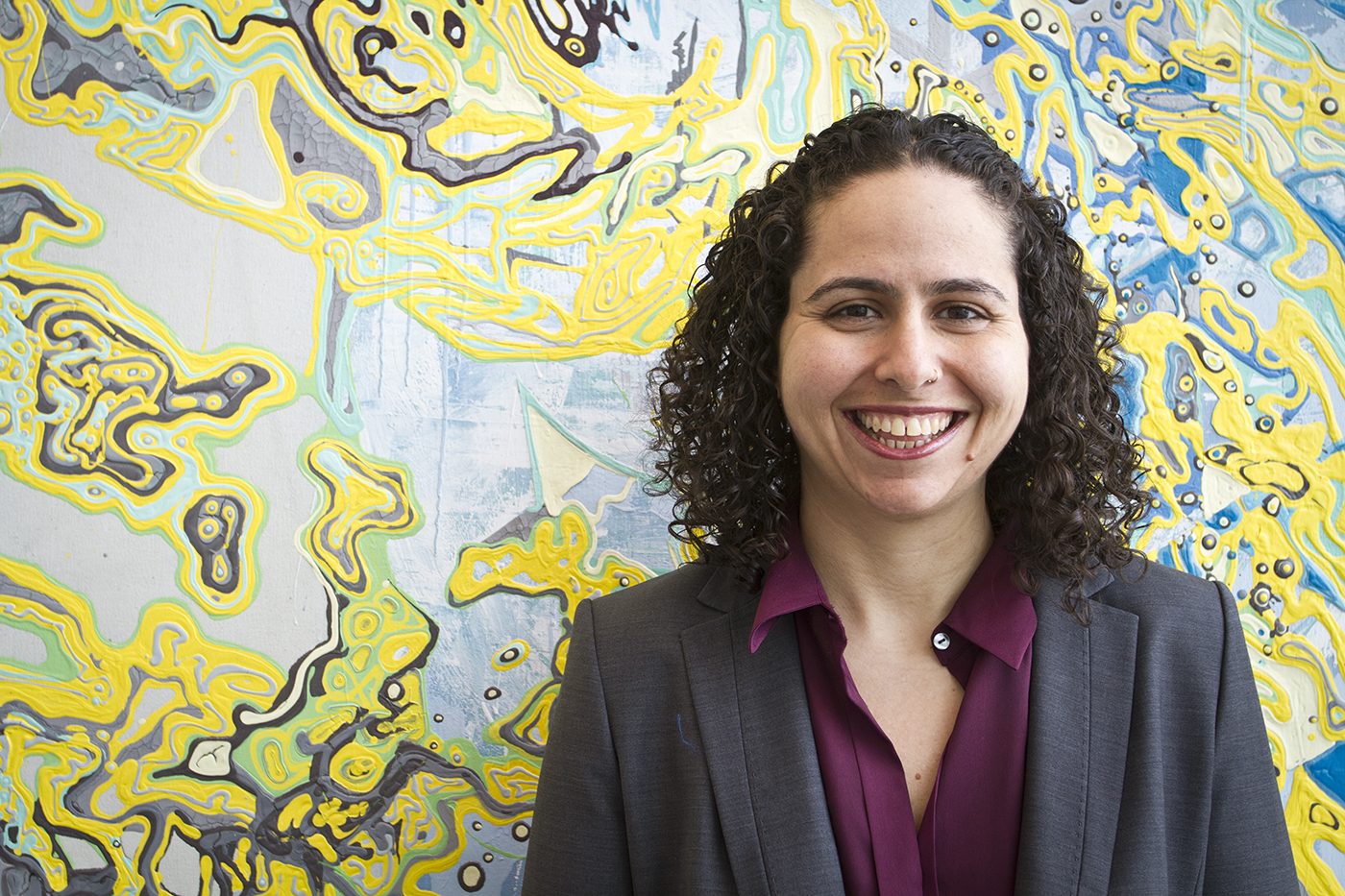Elena Conte, senior fellow at the Pratt Center for Community Development, has worked for over two decades in community-based planning on projects to improve housing, the environment, and economic opportunities for low-income New Yorkers.
 In celebration of Women’s History Month, Pratt is sharing the stories of women who are making history today by organizing in their local communities. Follow the Q&A series on the Pratt.edu news page and the @PrattInstitute Instagram for updates throughout March. This is the fourth in the series:
In celebration of Women’s History Month, Pratt is sharing the stories of women who are making history today by organizing in their local communities. Follow the Q&A series on the Pratt.edu news page and the @PrattInstitute Instagram for updates throughout March. This is the fourth in the series:
Elena Conte, senior fellow at the Pratt Center for Community Development, has worked for over two decades in community-based planning on projects to improve housing, the environment, and economic opportunities for low-income New Yorkers.
Why do you think creativity is important in activism and community organizing?
Political conditions are constantly shifting. While clarity on what you’re fighting for and why is essential, flexibility and creativity to take actions that will shift power dynamics, ignite reactions, and guide responses to unforeseen changes are essential to success. The openness that comes from pursuing the authentic relationships that are the basis of all this work is born of a spirit of creativity.
Is there anything about your experience at Pratt that influences your work?
It’s important to remember that history does not begin the day you arrived. Being a part of the Pratt Center for Community Development and its distinguished legacy reminds me of the principles that have been long-held and are unchanging, and the battles that have been today’s precursors. Context is necessary to understand, and humility is essential. Both my colleagues at the Pratt Center and my instructors at the Graduate Center for Planning and the Environment (GCPE) have taught me that. And of course, there’s nothing like the on-the-ground reality in New York City’s neighborhoods to hold us accountable for how we move in the world.
What advice would you give to someone who wants to get involved in grassroots efforts and organizing in their communities?
Listen. Meet a lot of people and really listen and learn. Ask respectful questions and don’t expect others—especially BIPOC and other marginalized peoples—to do the work for you. But show up as your authentic self, find an organization that is committed to developing leaders and democratic processes, and jump in there and have fun!
How does being a woman inform your work as an activist and are there any historical women organizers you are inspired by?
As a queer, white woman born and raised in New York City, my intersectional identities inform my work and create blindspots of privilege. I am encouraged to know that women—especially women of color—have always been at the heart of community organizing, forging and maintaining relationships—formal and informal—and leading in many venues. I am also aware of how that work has been undervalued historically, with credit often being afforded to men in formal positions of power, deemed as chief strategists. So knowing what it really takes to organize, and who has typically been expected to perform which roles, gives me the confidence and the strength to know that women and queer folk can do it all, on their own terms, breaking boundaries in our own personal expression of talent. As June Jordan said, “we are the ones we have been waiting for,” so my inspirations are the women making history today —here in New York City, Afua Atta-Mensah, Cathy Dang, Wanda Salam’an, Dariella Rodriguez, Susanna Blankley; beyond the city, Patrisse Cullors, Francisca Porchas… the list is so long because we are everywhere doing the damn thing!
For more of the Pratt Women Organizing for Change series, see the previous Q&As with NYC Councilmember Laurie A. Cumbo, Mia Bruner of the Prison Library Support Network, and Sarah Kanu of the Pratt Student Government Association.